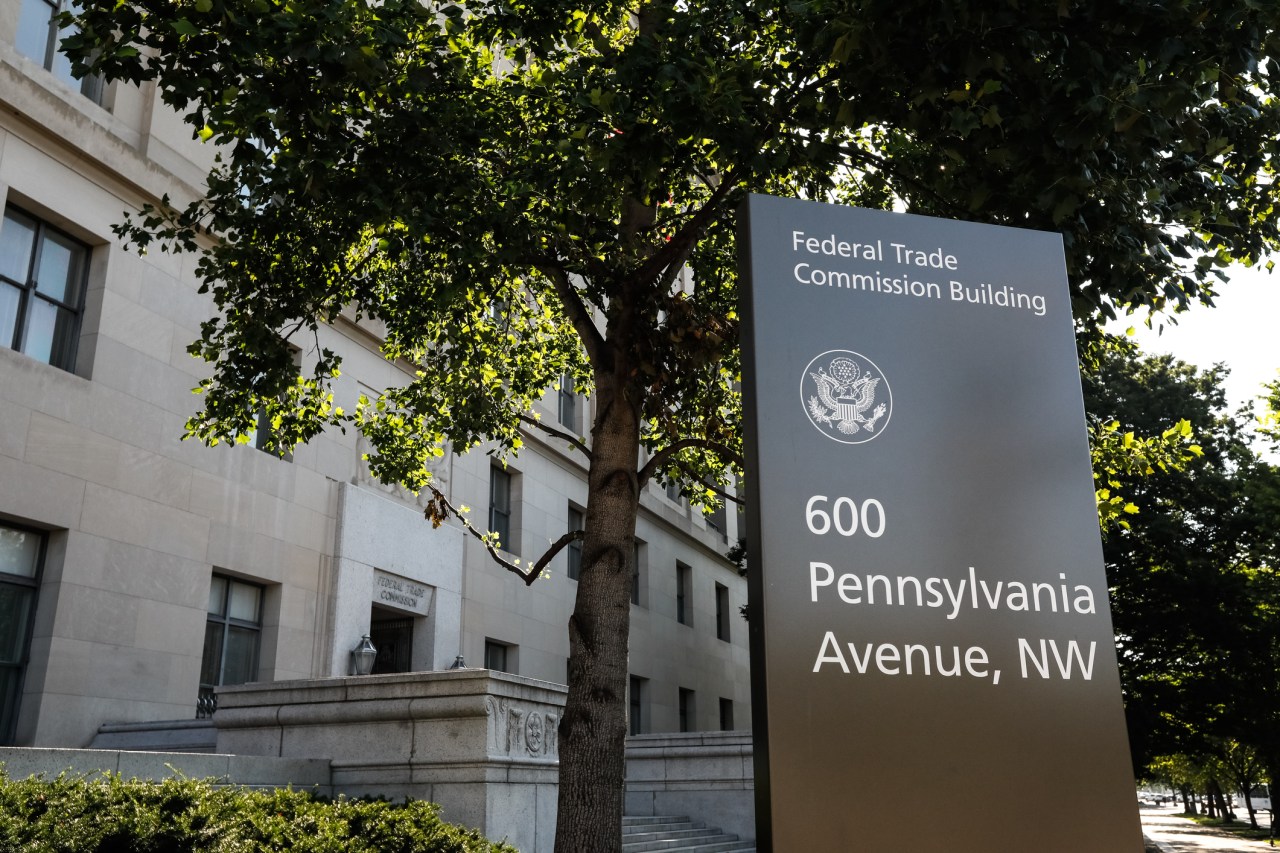FTC Probes OpenAI: Implications For AI Development And Regulation

Table of Contents
The FTC's Concerns: Data Privacy and Algorithmic Bias in Generative AI
The FTC's investigation into OpenAI likely centers on several key areas of concern related to data privacy and algorithmic bias within its generative AI models, such as ChatGPT. These concerns are rooted in the potential for violations of the FTC Act, specifically Section 5, which prohibits unfair or deceptive acts or practices.
-
Data Privacy Violations: The FTC is likely scrutinizing OpenAI's data collection practices, focusing on how personal information is gathered, used, and protected during the training of its large language models (LLMs). Questions around informed consent, data security breaches, and the potential for misuse of personal data are central to this aspect of the investigation. The sheer volume of data used to train these models raises significant concerns regarding compliance with existing data protection laws.
-
Algorithmic Bias and Unfair Outcomes: A major concern revolves around the potential for algorithmic bias in OpenAI's models. These biases, stemming from the data used to train the AI, can lead to unfair or discriminatory outcomes. For example, biased datasets could result in ChatGPT generating responses that perpetuate harmful stereotypes or discriminate against certain groups. The FTC is likely investigating whether these biases constitute unfair or deceptive practices under Section 5.
-
Deceptive Practices and Consumer Protection: The FTC is also examining whether OpenAI's marketing and promotional practices regarding its AI models are truthful and not misleading. This includes assessing whether claims about the capabilities and safety of its AI are accurate and do not mislead consumers. Transparency about the limitations and potential risks associated with these powerful technologies is another key area of focus.
The challenges of ensuring data privacy in the context of LLMs and generative AI are substantial. The sheer scale of data required for training these models makes it difficult to guarantee the anonymization and secure handling of personal information. This necessitates a robust regulatory framework to address these challenges.
Implications for AI Development: Slowdown or Innovation?
The FTC investigation into OpenAI could significantly impact the trajectory of AI development. While some fear a slowdown in innovation due to stricter regulations, others believe it could foster more responsible AI development.
-
Regulatory Hurdles and Innovation: Increased regulatory scrutiny might impose significant hurdles on AI development, potentially slowing down the pace of innovation, especially for smaller AI companies with fewer resources to navigate complex compliance requirements. The cost of ensuring compliance with data privacy and bias mitigation measures could be substantial.
-
Responsible AI Development: Conversely, the investigation could catalyze a shift towards more responsible AI development practices. The need for robust model safety testing, ethical guidelines, and transparency in AI development processes will likely become more prominent. This could lead to the development of more robust and trustworthy AI systems in the long run.
-
Balancing Innovation and Risk Mitigation: The critical challenge lies in finding the right balance between fostering innovation and mitigating potential risks associated with AI. Overly stringent regulations could stifle innovation, while insufficient regulation could lead to widespread harm. A nuanced and proportionate regulatory approach is essential. This requires a comprehensive risk assessment process for each AI application.
The development lifecycle of AI models is likely to undergo significant changes due to increased regulatory scrutiny. Emphasis will shift towards robust testing and validation throughout the entire lifecycle, ensuring adherence to data privacy regulations and minimizing algorithmic bias.
The Future of AI Regulation: Global Perspectives and Best Practices
The FTC's actions are not isolated; they set a significant precedent for other regulatory bodies worldwide. The future of AI regulation hinges on global cooperation and the establishment of consistent ethical guidelines and frameworks.
-
Global AI Standards and Data Protection Laws: Existing data protection laws, such as the General Data Protection Regulation (GDPR) in Europe and the California Consumer Privacy Act (CCPA) in the US, play a crucial role in shaping AI regulation. However, the rapid pace of AI development necessitates international collaboration to establish comprehensive and consistent global standards.
-
International Cooperation and AI Ethics: Effective AI regulation requires international cooperation. Establishing globally recognized ethical guidelines and regulatory frameworks is crucial to avoid regulatory fragmentation and ensure a level playing field for AI developers worldwide. Shared best practices and harmonized standards are essential for responsible AI development.
-
Best Practices for Responsible AI: Best practices for responsible AI development and deployment are crucial. This includes establishing clear ethical guidelines, implementing rigorous testing and validation procedures, fostering transparency and explainability in AI systems, and ensuring accountability for AI-related harms.
Creating global standards for AI regulation poses significant challenges. Different countries have varying legal systems, cultural values, and technological capabilities, making it difficult to reach a consensus on universal standards. The potential for regulatory fragmentation, where different jurisdictions adopt conflicting regulations, could hamper international collaboration and innovation.
Conclusion
The FTC's investigation into OpenAI underscores the crucial need for robust regulation in the rapidly evolving field of artificial intelligence. Data privacy, algorithmic bias, and consumer protection are paramount concerns demanding careful consideration as AI technologies become increasingly integrated into our lives. The investigation highlights the need for responsible AI development that prioritizes ethical considerations and safeguards against potential harms.
The future of AI depends on responsible development and effective regulation. Stay informed about the FTC's investigation and the evolving landscape of AI regulation to ensure the ethical and safe development of this transformative technology. Learn more about the implications of the FTC probes OpenAI and participate in the ongoing conversation about AI regulation. The responsible development and deployment of AI require a collaborative effort from researchers, developers, policymakers, and the public alike.

Featured Posts
-
 Bof As Analysis Why Current Stock Market Valuations Arent Necessarily A Problem
Apr 29, 2025
Bof As Analysis Why Current Stock Market Valuations Arent Necessarily A Problem
Apr 29, 2025 -
 Trumps First 100 Days Part 2 Trade Deregulation And The Impact Of Executive Orders
Apr 29, 2025
Trumps First 100 Days Part 2 Trade Deregulation And The Impact Of Executive Orders
Apr 29, 2025 -
 La Fires Landlords Exploiting Crisis Claims Reality Tv Star
Apr 29, 2025
La Fires Landlords Exploiting Crisis Claims Reality Tv Star
Apr 29, 2025 -
 Anthony Edwards Fined 50 K By Nba Over Fan Interaction
Apr 29, 2025
Anthony Edwards Fined 50 K By Nba Over Fan Interaction
Apr 29, 2025 -
 Trump Supporter Ray Epps Defamation Lawsuit Against Fox News Jan 6 Falsehoods Allegations
Apr 29, 2025
Trump Supporter Ray Epps Defamation Lawsuit Against Fox News Jan 6 Falsehoods Allegations
Apr 29, 2025
Latest Posts
-
 Oh What A Beautiful World A Review Of Willie Nelsons New Album
Apr 29, 2025
Oh What A Beautiful World A Review Of Willie Nelsons New Album
Apr 29, 2025 -
 Country Legend Willie Nelson Releases Oh What A Beautiful World
Apr 29, 2025
Country Legend Willie Nelson Releases Oh What A Beautiful World
Apr 29, 2025 -
 New Music Willie Nelson Releases 77th Solo Album At 91
Apr 29, 2025
New Music Willie Nelson Releases 77th Solo Album At 91
Apr 29, 2025 -
 New Music Willie Nelsons Oh What A Beautiful World
Apr 29, 2025
New Music Willie Nelsons Oh What A Beautiful World
Apr 29, 2025 -
 Oh What A Beautiful World Willie Nelsons Latest Album Details
Apr 29, 2025
Oh What A Beautiful World Willie Nelsons Latest Album Details
Apr 29, 2025
